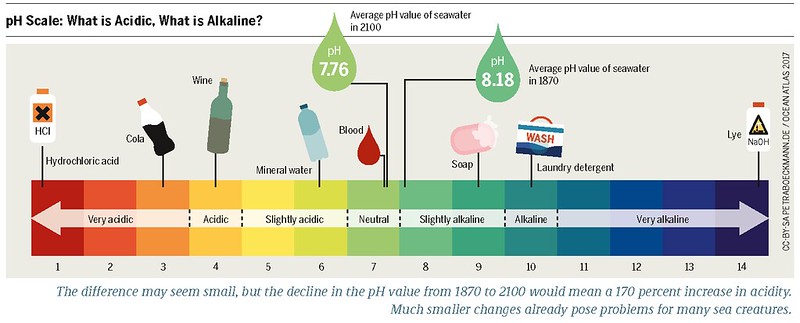The pH of molasses water can significantly impact the fermentation process, making it crucial for DIY users to understand and manage this parameter effectively. Cane molasses, the most common type, typically has an acidic pH between 5 and 7, but when added to water, it can increase the pH to as high as 8.2 within 24 hours. Maintaining the right pH balance is essential to ensure a successful and efficient fermentation.
Determining the pH of Molasses Water
Measuring the pH of liquid molasses can be challenging due to its viscosity. One recommended method is to mix the molasses with an equal volume of distilled water and then use a Vernier pH probe to measure the pH. This approach helps to dilute the molasses and make the pH reading more accurate.
Balancing the pH of Molasses Water
When adding molasses to water, the pH can rise significantly, potentially stressing the yeast and affecting the fermentation process. To balance the pH, DIY users can add a weak acid, such as acetic acid, to the molasses water. This helps to bring down the pH without introducing additional sodium, potassium, or calcium, which can also impact the yeast.
It’s important to note that molasses can contain various contaminants, chemicals, and substances that can affect the pH and the fermentation process. For instance, molasses may contain nitrogenous compounds, ash, and gunk that can react with strong bases, such as calcium hydroxide, and create off-odors. To address this, it’s recommended to treat the molasses with a suitable base, such as ammonium hydroxide, to cleave the glycosides that lock away the aroma precursors without antagonizing the yeast or creating off-aromas.
Monitoring and Adjusting the pH
Continuous monitoring and adjustment of the pH are crucial during the fermentation process. DIY users should regularly check the pH of the molasses water and make necessary adjustments to maintain the optimal range. This can help ensure a successful and efficient fermentation, leading to the desired outcome.
Factors Affecting the pH of Molasses Water
The pH of molasses water can be influenced by several factors, including:
- Type of Molasses: Different types of molasses, such as cane molasses, beet molasses, and blackstrap molasses, may have varying pH levels.
- Water Quality: The pH of the water used to dilute the molasses can also impact the overall pH of the mixture.
- Fermentation Byproducts: As the fermentation process progresses, the production of various byproducts can alter the pH of the molasses water.
Understanding these factors can help DIY users better manage the pH of their molasses water and ensure optimal fermentation conditions.
Conclusion
The pH of molasses water is a crucial factor in the fermentation process, and it’s essential for DIY users to understand and manage this parameter effectively. By determining the pH, balancing it through the addition of a weak acid, and continuously monitoring and adjusting as needed, users can create the ideal environment for successful and efficient fermentation. Considering the potential contaminants and substances in molasses, it’s also important to treat the molasses appropriately to avoid any adverse effects on the yeast or the final product.
References:
- What is the method in finding out the pH of liquid molasses? – Quora. https://www.quora.com/What-is-the-method-in-finding-out-the-pH-of-liquid-molasses
- Molasse – an overview | ScienceDirect Topics. https://www.sciencedirect.com/topics/food-science/molasse
- Addition of Molasses Ameliorates Water and Bio-Floc Quality … – NCBI. https://www.ncbi.nlm.nih.gov/pmc/articles/PMC9128646/
- Affect on water PH from molasses? – Rollitup. https://www.rollitup.org/t/affect-on-water-ph-from-molasses.373364/
- A dilemma with molasses and pH control – Powered by XMB 1.9.11. http://www.sciencemadness.org/talk/viewthread.php?tid=155468
- Molasses wash pH and stuck fermentations – Page 2. https://www.stilldragon.org/discussion/2195/molasses-wash-ph-and-stuck-fermentations/p2

